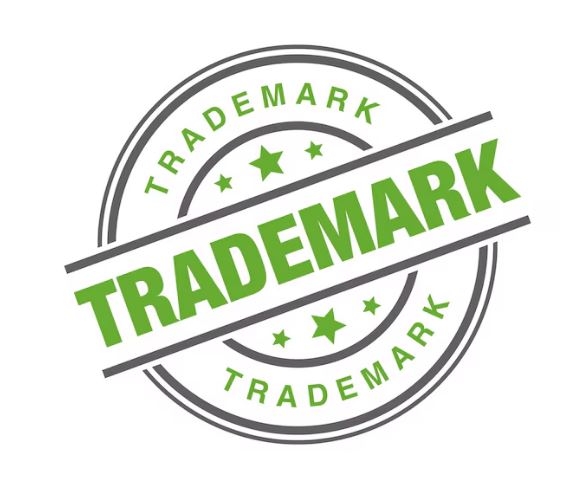Can Numbers Be Brands? Delhi High Court Weighs in on Trademark 2929

In a significant ruling, the Delhi High Court recently addressed the registrability of numerical trademarks in the case concerning the number “2929.” This decision underscores the evolving landscape of trademark law in India, particularly regarding the protection of numbers as distinctive brand identifiers.
Table of Contents
Numbers as Trademarks: Legal Framework and Precedents
Under Section 2(1)(m) of the Indian Trade Marks Act, 1999, numerals are explicitly included in the definition of a trademark. Courts have consistently held that numerical trademarks must possess inherent distinctiveness or have acquired distinctiveness through use. For instance, in the case of Alphavector India Pvt. Ltd. v. Sach Industries, the Delhi High Court granted protection to the numeral “91” used in connection with bicycles, recognizing its acquired distinctiveness and the likelihood of consumer confusion with the defendant’s use of “99”.
Conversely, in Mona Aggarwal & Anr. v. Glossy Colour & Paints Pvt. Ltd. & Anr., the Court held that while numerical marks like “1001” can be registered, they do not grant exclusive rights over all numerals, and each case must be assessed based on the overall impression created by the mark.
Key Considerations for Numerical Trademarks
When evaluating the registrability and protection of numerical trademarks, several factors come into play:
- Distinctiveness: The numeral must be inherently distinctive or have acquired distinctiveness through extensive use.
- Arbitrariness: The more arbitrary the numeral in relation to the goods or services, the higher the likelihood of it being considered distinctive.
- Consumer Perception: The mark should be recognized by consumers as identifying the source of the goods or services.
- Avoidance of Descriptiveness: Numerals that describe a characteristic or quality of the goods or services are less likely to be registrable.
The 2929 Trademark Case: A Legal Milestone
In a recent appeal under Section 91 of the Trade Marks Act, 1999, the Delhi High Court was called upon to decide the registrability of the numerical trademark ‘2929’ in Class 3, covering goods such as cosmetics, shampoos, soaps, and other personal care items. The Registrar of Trade Marks had earlier refused the application stating that the mark was devoid of distinctive character and not eligible for protection under Section 9 of the Act.
The Applicant argued that ‘2929’ is an arbitrary and coined numeral with no direct reference to the nature, quality, or characteristics of the goods. It was further submitted that the Appellant already owns various other numerical marks such as ‘2929’, ‘9292’, ‘1111’, and ‘1010’, all registered in Class 3, thereby demonstrating a consistent recognition of such marks by the Trade Marks Registry. The Appellant contended that the marks met the requirements of inherent distinctiveness and was capable of distinguishing its products from those of others.
On the other hand, the Registrar had refused the application on the basis that ‘2929’ lacked originality and distinctiveness, arguing that ordinary combinations of numerals could not be monopolized without sufficient proof of acquired distinctiveness. It was also contended that previous registrations of numerical marks as device marks could not justify the registration of the word application.
Rejecting the Registrar’s reasoning, the Delhi High Court reaffirmed that the definition of “mark” under Section 2(1)(m) of the Trade Marks Act explicitly includes numerals, and numerical marks are inherently registrable, provided they fulfil the criteria under Section 9. Drawing from Indian and international jurisprudence — the Court emphasized that arbitrary numerals, especially non-descriptive of the underlying goods, can function as valid trademarks.
Importantly, the Court held that the mark ‘2929’ did not describe the goods and was arbitrary in relation to the products listed under Class 3. Since the mark was filed on a “proposed to be used” basis, there was no requirement at this stage to show acquired distinctiveness. The Court further noted that the existence of similar registered marks for the same Applicant bolstered the claim of registrability.
Accordingly, the Court set aside the refusal order and directed the mark to proceed to advertisement in the Trade Marks Journal. However, it clarified that the Appellant would not have exclusive rights over the individual numerals ‘2’ or ‘9’, and any third party would still have the opportunity to oppose the registration during the post-publication phase.
Conclusion
The Delhi High Court’s decision in the “2929” case reinforces the principle that numerical marks must meet the threshold of distinctiveness to qualify for trademark protection. While the law permits the registration of numerals as trademarks, Applicants bear the burden of proving that such marks serve as unique identifiers of their goods or services.
As the marketplace continues to evolve, and brands increasingly explore unconventional trademarks, the legal standards for distinctiveness and consumer recognition remain pivotal in determining the scope of protection afforded to numerical marks.
Contributed by: Aashita Khandelwal
King Stubb & Kasiva,
Advocates & Attorneys
New Delhi | Mumbai | Bangalore | Chennai | Hyderabad | Mangalore | Pune | Kochi
Tel: +91 11 41032969 | Email: info@ksandk.com
By entering the email address you agree to our Privacy Policy.